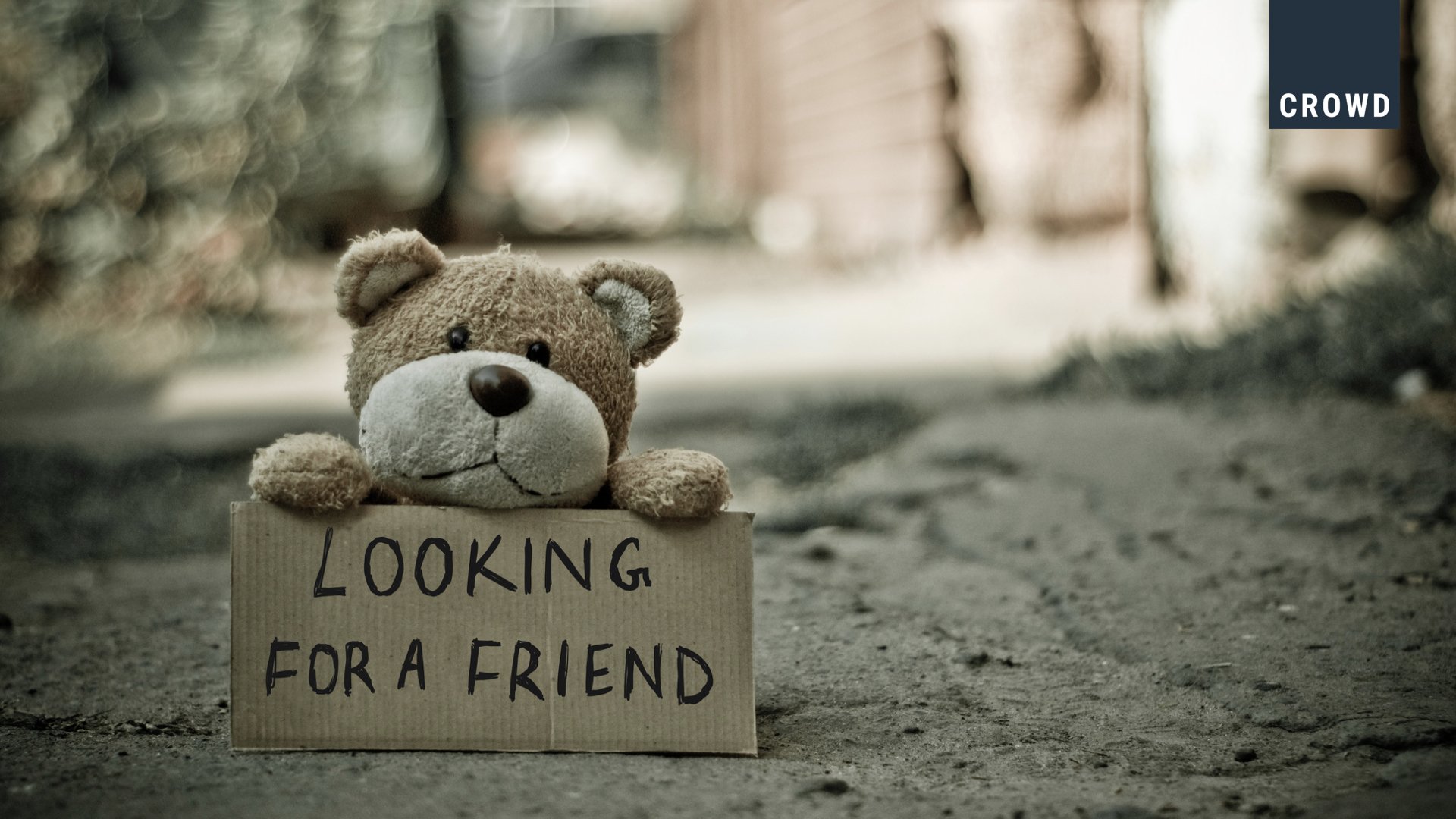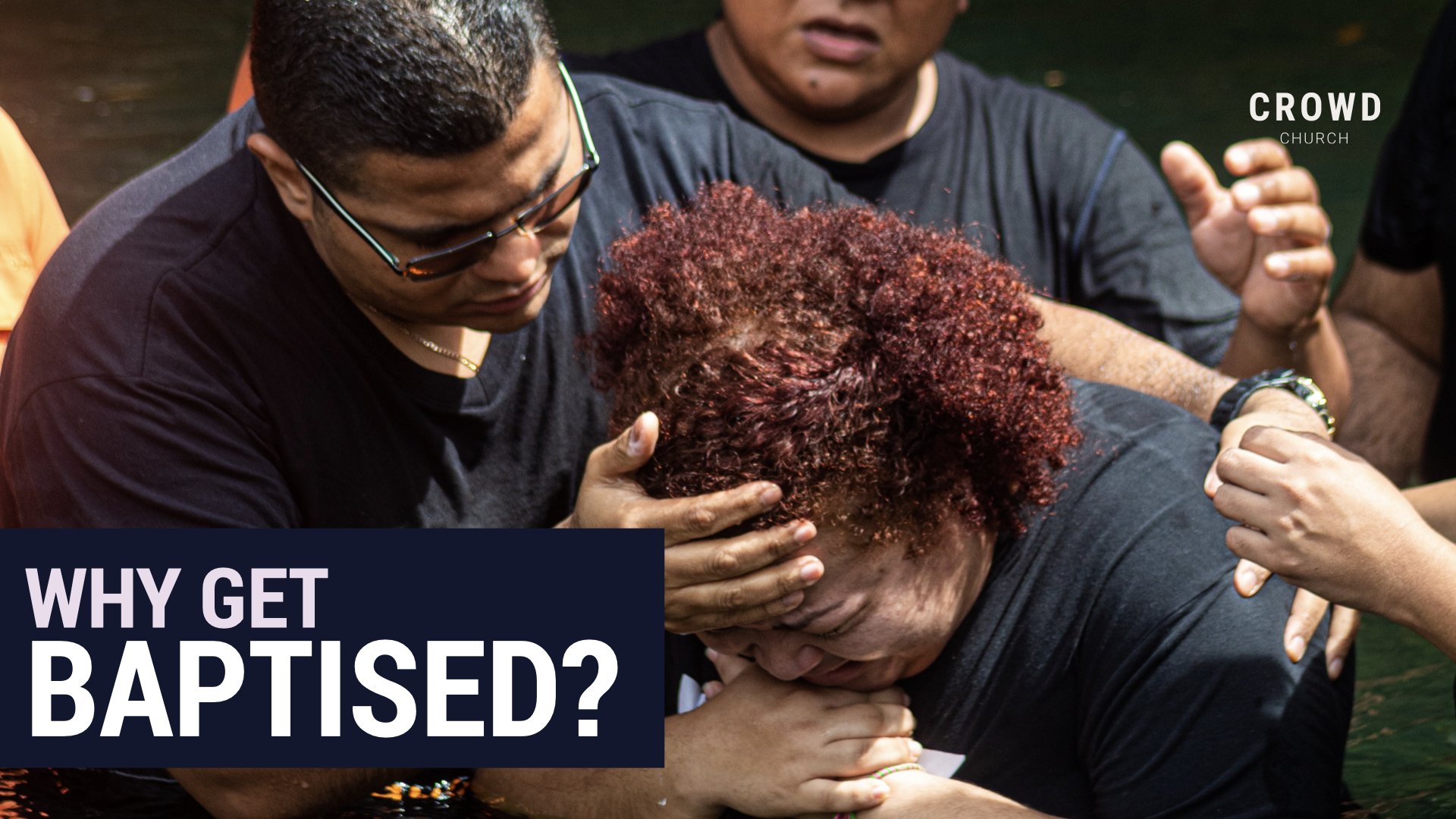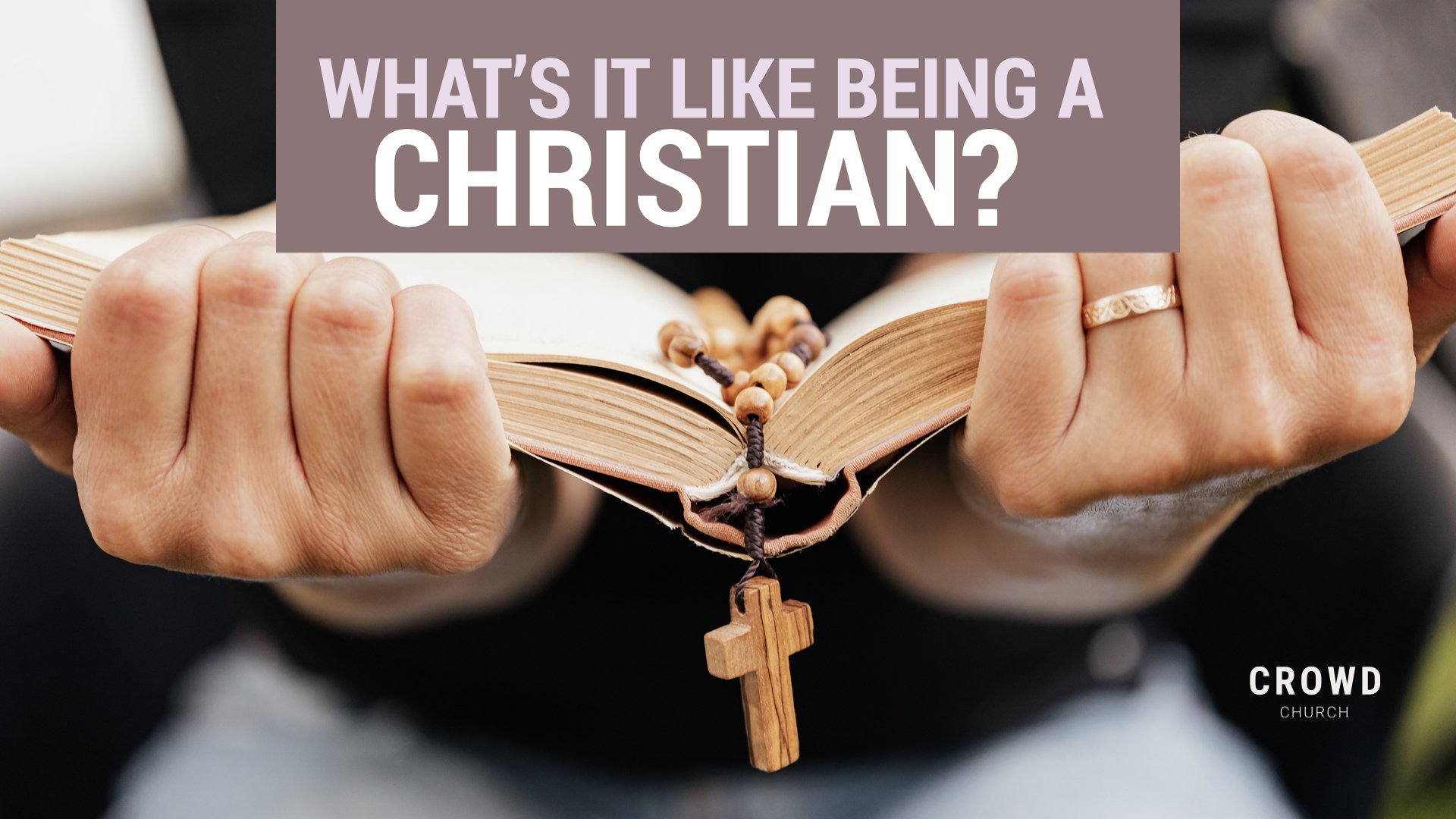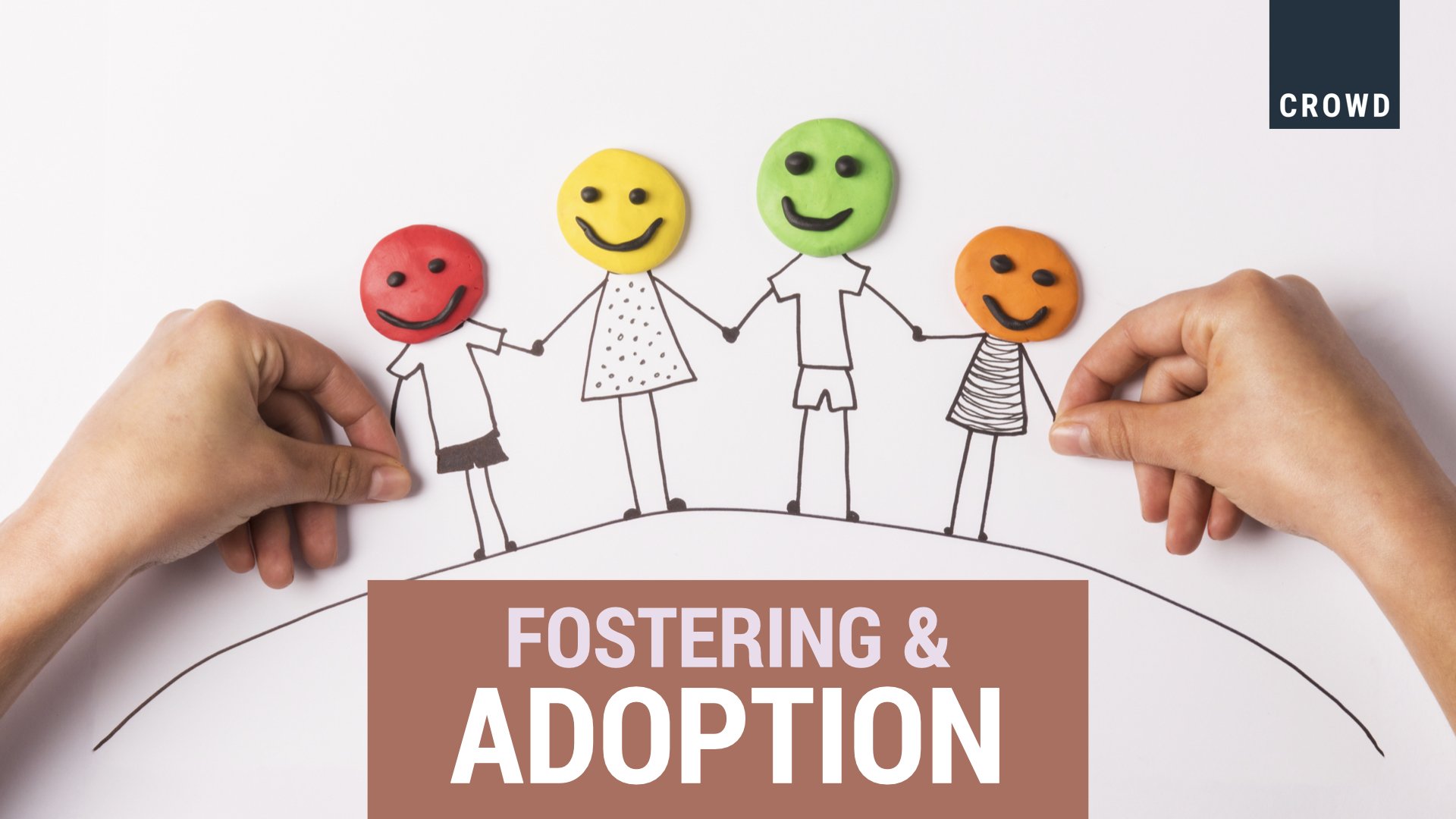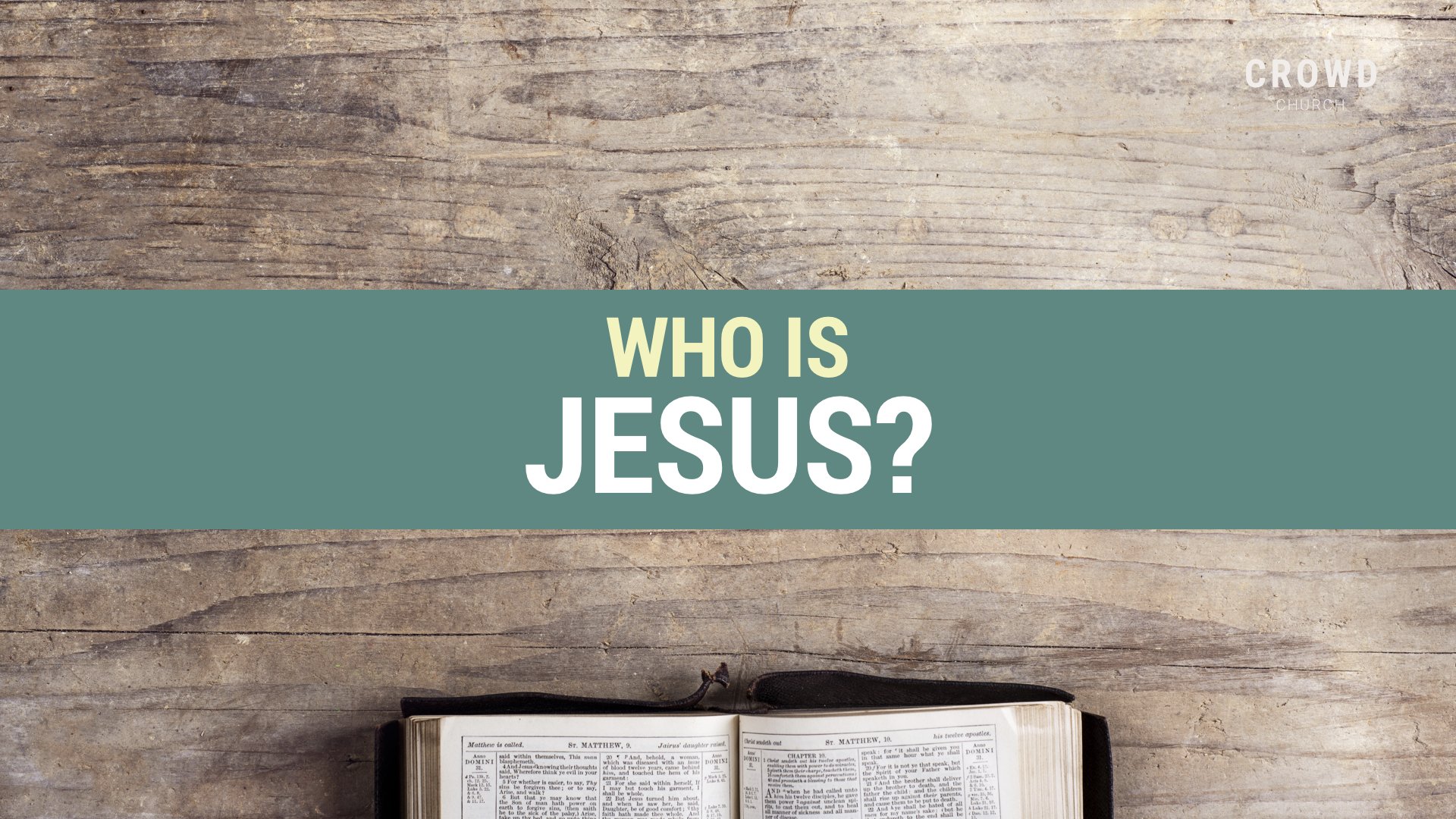What Does The Bible Say About The Environment?
Video Timeline
WELCOME
00:00 - Welcome with Matt
TALK with Elli Light
12:47 - What Does The Bible Say About The Environment?
15:47 - How Does The Bible Describe The Environment?
16:44 - God's Creation Is Good
17:43 - Nature Reflects God's Character
23:29 - All Of Creation Has Been Made Through Christ Jesus
24:12 - What Does The Bible Say About The Stewardship Of The Environment?
WORSHIP
36:29 - Worship - The Lion & The Lamb with Lyrics
CONVERSATION STREET with Matt
41:06 - Conversation Street
42:27 - What Does The Bible Say About The Future Of The Earth?
43:25 - What Is The Role Of Christians In Environmental Activism?
47:34 - What Things Do People Do People Already To Help Look After The World?
51:40 - Are We Stewarding The Resources That God Has Given Us Well?
52:34 - How Can I Make My Faith More Environmentally Friendly In My Everyday Life?
CLOSING WORSHIP
1:02:46 - All Creatures Of Our God with Lyrics
Podcast:
What does the Bible say about the Environment?
— Elli Light
So I am pretty sure that my generation was amongst the first to be taught in school, about climate change and the state of our environment, and that it's something that needs looking after. I remember very clearly learning about Reduce, Reuse, Recycle. We were taught about the ozone layer. We were told about this great dome above the Earth that had loads of holes in it and those holes meant that the earth was heating up which was going to melt the ice caps and the penguins would lose their homes. But that was about it. Maybe there'd be more water in the sea too. I couldn't comprehend what that actually meant.
Obviously, 10, 15 years down the line since my primary education, we've all been witness to the extreme weather conditions that have come as a consequence of this climate crisis. We've seen floods and droughts, forest fires, and extreme temperatures up route people from their homes, and even take their lives. We're constantly reminded of the problem especially when it's in the news, of activists doing crazy things like gluing themselves to the M25. We're constantly reminded of how important this is as a topic.
By the time that you guys are listening to this, we'll have had the cop 26 Climate Conference up in Glasgow, and we'll either have a super positive response to where the government has made great big promises, big plans, and we're all filled with hope and positivity around this whole situation, or potentially more realistically, based on previous examples of that kind of conference, we might be feeling a little disappointed that the government aren't doing quite enough and that these promises won't be fulfilled.
But anyway, believe it or not, I'm not actually here to depress us further on this topic. Though I am aware that this topic comes with a lot of weight, and a lot of anxiety attached to it. Personally, I've spent many sleepless nights thinking about where we're going in terms of our climate, and sometimes feel like we are accelerating towards, for want of a better word, destruction. On a human level, it feels fairly unstoppable and impossible.
But when we come to an impossible situation, it brings us nicely back to looking to God, because thankfully, our God is a God of miracles and restoration, and hope. So let's look to God in this, let's look at what the Bible says, let's look at what God says. Let's see how he can change our hearts so that we can change our actions.
How does the Bible describe the environment?
Like I've just said, I think it's really important that we understand how the Bible talks about the environment. It's so important to understand what God's purpose for it is and the reasons why he brought it into being. I want to start here because if we can understand the why, if we can understand the heart of this as a topic, then we'll be inspired to make a change. But if we're doing this out of a "should", or a "must", it's not going to create a sustainable action and sustainable change. So have that in the back of your mind, as we're going through this. Think about what sits well with you, what doesn't, what creates an emotional response, what doesn't. Just keep that in the back of your mind. I think that's going to be how we unlock this topic.
God's Creation Is Good
So let's get to it. Overall, how the Bible describes the environment and creation is that it is good. In the first chapter of the Bible, God says this seven times. God makes something and he sees that it's good. He makes it, he sees that it's good, he makes it, he sees that it's good. It says that seven times. Then, we get to the end of the chapter and God sees all of it. It says,
God saw all that he had made. And it was very good.
This is a very poetic start to the love story of the Bible and it begins with the goodness of creation. We see that throughout the whole Bible and into the New Testament as well. 1 Timothy 4:4 says,
“For everything God created is good. And nothing is to be rejected if it is received through thanksgiving. ”
Creation is good. That's a good starting point.
Nature Reflect's God's Character
Another significant theme around the environment and creation of how it's described in the Bible, is this idea that nature reflects God's character. In the New Testament, Paul writes a letter to the Romans. And he puts it quite bluntly, as Paul often does. He says,
“For since the creation of the world, God’s invisible qualities, His eternal power and His divine nature, have been clearly seen, being understood from what has been made, so that people are without excuse. ”
He's saying here, you don't have an excuse if you've never heard of Jesus or you've never heard of God, because God is oozing from the world around us. He is in everything. His divine nature and his eternal power are in everything that's around us. That in itself is evangelism.
If we look at Psalm 19:1-4,
“The heavens declare the glory of God, the skies proclaim the work of his hands. Day after day they pour forth speech. Night after night, they display knowledge. There is no speech nor language where their voice is not heard. Their voice goes out into all the earth, their words to the ends of the world. ”
This passage is also showing us the beginning of the idea that not only does creation reflect God's nature, but it has a spirit of its own. Paul says, again, back in Romans, about all of creation groaning with the pains of childbirth. Creation groans and celebrates God. How can it do that if it's not alive, if it's not in relationship with God? This is backed up again in the book of Psalms. Psalm 96 shows us that creation is alive and lives in adoration of its creator:
“Let the heavens rejoice, let the earth be glad; let the sea resound, and all that is in it. Let the fields be jubilant, and everything in them; let all the trees of the forest sing for joy. Let all creation rejoice before the Lord...”
We're gonna jump to Job now which is a slightly heavier part of the Bible, but in Job 38, there is an incredibly powerful account of God justifying who he is to Job. He wants Job to know His divinity, His majesty, His holiness, His otherness to us. He does that by talking about his creation. Verse four says,
“Where were you when I laid the earth’s foundation? Tell me, if you understand. Who marked off its dimensions? Surely you know! Who stretched a measuring line across it? On what were its footings set, or who laid its cornerstone— while the morning stars sang together and all the angels[a] shouted for joy? “Who shut up the sea behind doors when it burst forth from the womb, when I made the clouds its garment and wrapped it in thick darkness, when I fixed limits for it and set its doors and bars in place, when I said, ‘This far you may come and no farther; here is where your proud waves halt’?”
Verse 16,
“Have you journeyed to the springs of the sea or walked in the recesses of the deep? Have the gates of death been shown to you? Have you seen the gates of the deepest darkness? Have you comprehended the vast expanses of the earth? Tell me, if you know all this.”
Verse 22
“Have you entered the storehouses of the snow or seen the storehouses of the hail, which I reserve for times of trouble, for days of war and battle? What is the way to the place where the lightning is dispersed, or the place where the east winds are scattered over the earth? Who cuts a channel for the torrents of rain, and a path for the thunderstorm, to water a land where no one lives, an uninhabited desert, to satisfy a desolate wasteland and make it sprout with grass?”
That bit is particularly interesting because it's talking about God watering a place where man doesn't even live. So this shows his real care for creation, apart from humans. I really love these chapters and would encourage you to go and read them. They begin to capture the vastness of God and it does that through a description of creation like marking off the dimensions of the universe. Incredible. He's enormous.
As well as the vastness of God, it shows us that He is in control, that he's orchestrating this whole thing, that he has ownership of it. Psalm 24 says,
“The earth is the Lord’s, and everything in it...”
So God is this passionate artist who is full of love and pride for his work. He knows every inch of it inside and out, which again becomes way more evident if you read 38, 39, 40 of Job. So, we know that God is in control and His nature is reflected in creation.
All Of Creation Has Been Made Through Jesus Christ
To top it all off, in the gospels, we learn that all of creation has been made through Christ Jesus as well. He was there in the beginning of it all. In John 1, as well as Colossians it says that everything was made through Him. Through Jesus, all things were made. Through Him and by Him and for Him. So that emphasises again how important creation is and how important the environment is to God.
And yet He entrusts it to us.
What does the Bible say about the stewardship of the environment?
Image courtesy of Eco Life - Permaculture
Genesis 1:26 says,
“Then God said, “Let us make man in our image, after our likeness. And let them have dominion over the fish of the sea and over the birds of the heavens and over the livestock and over all the earth and over every creeping thing that creeps on the earth.””
So far we have learned about the beauty of creation and the environment, the love behind it, the significance of it to God, and that it is the one thing that people who don't know God can find Him in. Then we learned that tending to that environment, looking after it, and making sure that it continues to be has been entrusted to us. That's, that's our job. And that is a really, really big deal. A huge deal in fact.
The death toll of the climate crisis
I just want to touch on one more element of this before unpacking stewardship just a little bit more. That is the death toll of the climate crisis. We know that it is important for us to look after the environment because God's told us that in Genesis. But a huge part of this is the human impact that the climate crisis has. I don't want to say this because I want us to feel guilty. I want to say this because it's really easy for us to forget it.
Here in the UK, we live in a privileged position of the climate crisis not knocking on our door in the same way as other places. We've had floods and heat waves that have affected crops and people's homes have been flooded and people's lives have been uprooted. I don't want to dismiss that. But comparatively, across the globe, we have not had the same impact that is elsewhere.
God calls us to look at the last, the least and the lost. We are not the last and the least in this situation. So to give this some context with some numbers, a study published earlier this year linked nearly 10%, (9.6%) of all deaths globally, since 2000, to our changing climate. That's quite significant. Annually, that works out at around 5 million deaths per year. When that's broken down into areas of the world impacted, of those 5 million, only 50,000 of those are in the UK. 2.6 million of them are in Asia, 1.5 million in Africa. It goes without saying, you have to take into account the population differences of the UK and all of Asia. However, even Australia, which has half the population of the UK has three times the death toll that we do related to the climate crisis in the UK.
So this isn't going to be something that hits us often in the UK right now. It is the people that we don't see who are being affected by this. So it's really important to remind us that this is not an abstract concept that is coming in the future and will affect our children and our children's children. It is killing people right now. And it won't be the rich who pay for it. It won't be the privileged who pay for it. It will be the last the least and the lost. Jesus calls for us to do something about that.
God works in unexpected ways…
I just want us to take a little moment and look at how we're feeling. If this is making you feel overwhelmed or guilty, or afraid or hopeless or a bit paralysed, like when it all feels so big and so unstoppable, it's becomes easy to just block it all out. Again, we can do that in the UK and go day to day without having to think about it. When we get to those moments where we are so overwhelmed by the magnitude of this, that's when it's great to come back to God and to be reminded of what we said before that He is a God of miracles, and restoration, and hope. He is the powerful creator and orchestral conductor of the environment. He is in control and when it comes to life-changing world-saving plans, He's quite good at those and He does them in really unexpected ways. When our world was drowning in sin, He didn't send a big world leader, who made loads of big changes and punish the bad guys and looked after the good guys. He sent a baby, He became a baby. He put that baby in the hands of humans. My point is, God works in unexpected ways, and He uses us in these impossible situations.
How should we respond?
Our response, then, as stewards, should be two-fold. I think we need to take action, and also have hope. Both of those things, start with prayer and looking at the Bible, meditating on those passages that we've just looked at. We need to ask God to move our hearts and to remind us daily that this is something that we can do something about. But it takes us and God working together, action and hope to make a change here.
I'm also aware I've not given practical, actionable tips so far, and I don't particularly want to. Not least because there are people who are far more qualified than me who've made wonderful lists of ways you can make a difference in your life. If you just do a bit of Googling, look at Oxfam, Tearfund, Greenpeace, there are so many websites with great, great examples of what you can do and what changes you can make.
The one tip I will give, is to say, start manageable. Take what you know you can take on. If that's just the smallest thing then great. Once you've got that, then what's the next thing you can bring into your life? What's the next lifestyle change you can make and the next bit and the next bit? But constantly throughout that process, it has to come back to God. It has to come back to that heart motivation for this because these changes in our lives will probably be inconvenient at times. Washing your recycling takes time. But we're only going to want to do them if we understand why we want to do them.
There is one little catchphrase that I'm going to leave you with that someone said to me a little while ago. That is,
Something is better than nothing. And more is better than less.
So just do something, something is better than nothing. And more of that is better than less. So make a start and pray and have the right motivation. If you don't care about any of this at all, let's look at why. Why are you switched off to this? Maybe you need to read some personal accounts of the impacts of climate change to stir your heart a little bit. Hopefully, that's given you all something to think about, something to talk about, something to pray about. Thank you for listening!
CONVERSATION STREET
With: Matt Edmundson.
What is Conversation Street?
Conversation Street is part of our live stream, where the host (in this case, Matt) chats through Elli’s talk and answers questions that were sent in through the live stream. To watch the conversation now, click here.
What Does The Bible Say About The Future Of The Earth?
Ultimately, the Bible says there's gonna be a new heaven and a new earth. Dan touched on this when he kicked off the What does the Bible say about? series, with his talk about the afterlife. Does that mean that we have a license to do whatever we like on the earth now? I don't think it does at all. Actually, the only conclusion you can come away with from Ellie's talk is that we've got a responsibility. We've got some stewardship issues going on here.
What Is The Role Of Christians In Environmental Activism?
Should we partake in activism? I think we should. I know that people from Tearfund and Christian Aid are doing a great job at the moment with cop 26. There are all kinds of things going on behind the scenes, which is fantastic. We should steward the planet, and encourage people to do that well. For me, I think it's good to encourage people to steward the planet well, but I don't think we do that independent of the gospel. Environmental activism and the good news go hand in hand, they're not two separate things. Just as God can restore the world, so he can restore humanity. We need both.
I think Christians should be involved in environmental activism. I don't think that means we have to tie ourselves to motorway bridges, but I do think it means that we have to be proactive in environmental issues.
I appreciate I'm saying this as a bit of a Luddite, as someone who has had to undo a lot of preconceived ideas and assumptions that I had growing up. I grew up in the '70s and in the '80s, and if there's one phrase you would use to describe the 80s, it would be consumerism. It's not got any better to be fair, but what was interesting in the 1980s was, the fair trade movement started, by Christians like Christian Aid, Tearfund, and a few others coming together. I was on the board for Tradecraft, and they came together and started the fair trade movement because they realised this consumerism, this insatiable need that the West had for goods and services, was actually causing a lot of damage in third world countries, and a lot of people were being treated unfairly because they weren't getting what they needed. We wanted low prices. That meant the guy that was farming stuff in Africa got nothing. We didn't know about it in the UK, nor did we care. We kind of have our blinkers on don't we? So they used their Christian worldview and their knowledge of having a responsibility to be a good steward of the earth, to see change happen.
Ultimately, there are consequences of this man-made climate change. Ellie touched on the number of deaths that are happening because of environmental change. There's also the excessive use of fossil fuels causing rising sea levels.
Now we're starting to see people not just caring about people but caring about the planet too. So we see things like B Corp taking off, which is a certification that companies get when they are doing things fairly for people and fairly for the planet. Their profits take into account both people and planet. I'm really excited about that. I'm not saying all of it but a lot of this is happening because of Christian environmental activism. Fair trade was started because of Christian activism. I really like that.
What Things Do People Do Already To Help Look After The World?
I'm trying all the simple things, like, turning the heating down a notch and wearing an extra jumper, because I think that has a big impact. Using less plastic is another. One of the companies that I run have halted a big production of recycled plastic because we want to assess the environmental impact a little bit more and a little bit better.
I like what Ellie said at the end there. Let's do what we can do, and do more of that and increase a little bit at a time. I think that's important.
Little Changes Can Go A Long Way
Do you remember the star fish story? There's a book actually called, Starfish. I feel a little bit like that guy who's walking down to the beach and he sees thousands of starfish who will die because they're out of the water. There's a young lad, who is picking them up and throwing them back into the sea. And the chap goes to the young lad asking, "why are you doing that? There are thousands of these starfish. You can't get them all back in the ocean. Really, you're only going to get one or two". And the young lad says, "well, I'm making a difference to the one or two". And I think it's very much that attitude. I think a lot of this comes down to being like that little lad on the beach, all doing a little bit.
Are We Stewarding The Resources That God Has Given Us Well?
I don't think we are. I think we are overconsuming. And the knock-on effect of this is that there are millions of people who die as a result. People's lives are at a very real risk from the decisions that we make, certainly in the West. Often I hear comments like actually global warming is going to be good for the UK, because at least it'll be a little bit warmer, right? And we can joke about it, but the consequences, we don't feel. But other people around the world do. We have to think about others. We have to steward our resources planet well. We have to give an account before God of what we've done.
How Can I Make My Faith More Environmentally Friendly In My Everyday Life?
Again, it just comes down to stewarding. Are we stewarding what God has made? Like Ellie said, making lots of little changes. Having the desire to do better and improve. Trying to fix things instead of rushing out to buy new things is a great one. Interestingly, I was involved in a beauty business and one of the biggest problems that industry has is the sheer amount of plastic they consume.
If you're married with kids or whatever, sit down as a family or if it's just you, think about what is your environmental policy? You're not going to put it on a website like we have to do for the company, but just write it down. This is my environmental policy. This is what I am going to do. I think I could do this, and then I'm going to review it, and try and get further along and make it better. I think that would be quite an interesting one.
I think that as Christians, we should absolutely take the lead in stewarding the environment because we understand the importance of creation and the responsibility we have been given. We've done it in the past in medicine, in science, and I think we should do it in environmental issues as well. However, I also think that being militant about things, probably isn't how God wants us to live. How do we do this with joy and with peace and with righteousness and with love? That I think is a bigger question.
Conclusion
So I think the takeaway from this is what's God saying? And what are you going to do about it? Have a think about that.
I hope you enjoyed today's conversation. I've got a lot out of it. Let's just pray for the world leaders because I think with cop 26, that's quite important. So we're just going to close in prayer.
A prayer for the planet…
Lord, I want to thank you, that you created this planet, I want to thank you that you created everything that we see. And it was good. Lord, would you help us steward this planet properly. Would you speak to each of us about changes that we can and should make. Lord, would You bless our world leaders. Would you guide conversations. Would you help us all to make the changes that we need to make in Jesus' name. Amen.
More Bible Verses On The Environment
Isaiah 11:19 - They will neither harm nor destroy on all my holy mountain, for the earth will be full of the knowledge of the Lord as the waters cover the sea.
Genesis 2:15 - The Lord God took the man and put him in the Garden of Eden to work it and take care of it
Matthew 6:26 - Look at the birds of the air; they do no sow or reap or store away in barns, and yet your heavenly Father feeds them. Are you not much more valuable than they?
Genesis 1:26-28 - So God created humankind in his image, in the image of God he created them; male and female he created them. God blessed them, and God said to them, "Be fruitful and multiply, and fill the earth and subdue it; and have dominion over the fish of the sea and over the birds of the air and over every living thing that moves upon the earth".
Job 12:9-10 - Who among all these does not know that the hand of the Lord has done this? In his hand is the life of every living thing and the breath of every human being.
Psalm 96:11-13 - Let the heavens be glad, and let the earth rejoice; let the sea roar, and all that fills it; let the field exult, and everything in it. The shall all the trees of the forest sing for joy before the Lord; for he is coming; for he is coming to judge the earth. He will judge the world with righteousness, and the peoples with his truth.
Isaiah 43:20-21 - The wild animals honour me, the jackals and the owls, because I provide water in the desert and streams in the wasteland, and give drink to my people, my chosen, the people I formed for myself that they may proclaim my praise.









